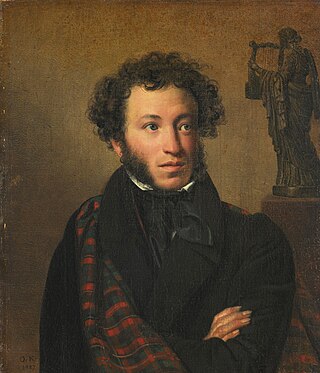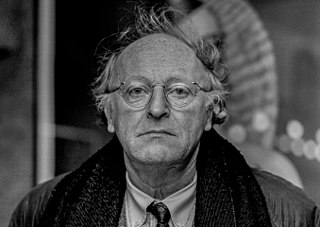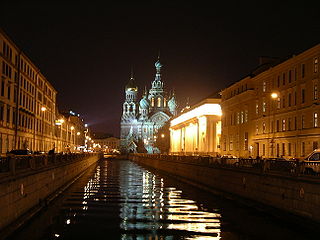
Alexander Sergeyevich Pushkin was a Russian poet, playwright, and novelist of the Romantic era. He is considered by many to be the greatest Russian poet and the founder of modern Russian literature.

Mikhail Yuryevich Lermontov was a Russian Romantic writer, poet and painter, sometimes called "the poet of the Caucasus", the most important Russian poet after Alexander Pushkin's death in 1837 and the greatest figure in Russian Romanticism. His influence on later Russian literature is still felt in modern times, not only through his poetry, but also through his prose, which founded the tradition of the Russian psychological novel.

Iosif Aleksandrovich Brodsky was a Russian and American poet and essayist. Born in Leningrad, Soviet Union, in 1940, Brodsky ran afoul of Soviet authorities and was expelled from the Soviet Union in 1972, settling in the United States with the help of W. H. Auden and other supporters. He taught thereafter at Mount Holyoke College, and at universities including Yale, Columbia, Cambridge, and Michigan. Brodsky was awarded the 1987 Nobel Prize in Literature "for an all-embracing authorship, imbued with clarity of thought and poetic intensity". He was appointed United States Poet Laureate in 1991.
A song cycle is a group, or cycle, of individually complete songs designed to be performed in sequence, as a unit.

Alexander Alexandrovich Blok was a Russian lyrical poet, writer, publicist, playwright, translator and literary critic.

Fyodor Ivanovich Tyutchev was a Russian poet and diplomat.

Vasily Andreyevich Zhukovsky was the foremost Russian poet of the 1810s and a leading figure in Russian literature in the first half of the 19th century. He held a high position at the Romanov court as tutor to the Grand Duchess Alexandra Feodorovna and later to her son, the future Tsar-Liberator Alexander II.

Evdokiya Petrovna Rostopchina was a Russian poet.
Boris Alexandrovich Tchaikovsky, PAU, was a Soviet and Russian composer, born in Moscow, whose oeuvre includes orchestral works, chamber music and film music. He is considered as part of the second generation of Russian composers, following in the steps of Pyotr Tchaikovsky and especially Mussorgsky.
Golden Age of Russian Poetry is the name traditionally applied by philologists to the first half of the 19th century. This characterization was first used by the critic Peter Pletnev in 1824 who dubbed the epoch "the Golden Age of Russian Literature."

The Griboyedov Canal or Kanal Griboyedova is a canal in Saint Petersburg, constructed in 1739 along the existing Krivusha river. In 1764–90, the canal was deepened and the banks were reinforced and covered with granite.

Georgy Vasilyevich Sviridov was a Soviet and Russian neoromantic composer. He is most widely known for his choral music, strongly influenced by the traditional chant of the Russian Orthodox Church, as well as his orchestral works which often celebrate elements of Russian culture.

Solliès-Pont is a commune in the Var department in the Provence-Alpes-Côte d'Azur region in southeastern France.
This is a list of works by writer Vladimir Nabokov.

Alexander Borisovich Zhurbin is a Russian composer.
Isabelle Aboulker is a French composer, particularly known for her operas and other vocal works. In 1999, she gained a prize from the Académie des Beaux-Arts and in 2000 the music prize of the Société des Auteurs et Compositeurs Dramatiques for her numerous lyric pieces.
Julia Kogan is a Ukrainian-born American–French–British operatic coloratura soprano, writer, and presenter.
Irina Dubkova (Russian: Дубкова Ирина Анатольевна) is a Russian composer, music teacher and an associate professor at the Moscow Conservatory.
Eugene Mark Kayden (1886–1977) was a professor emeritus of economics at Sewanee: The University of the South and a translator of Boris Pasternak's poems. Kayden, a pro-integrationist, declined an honorary degree from the university in protest of its decision to award another degree to noted segregationist Thomas R. Waring.











